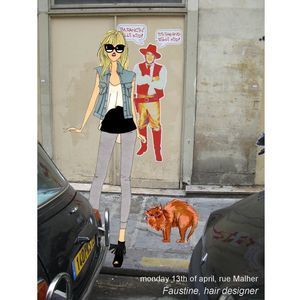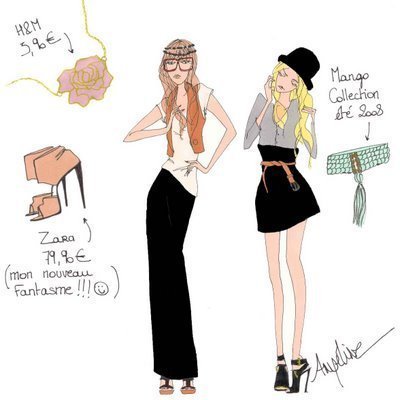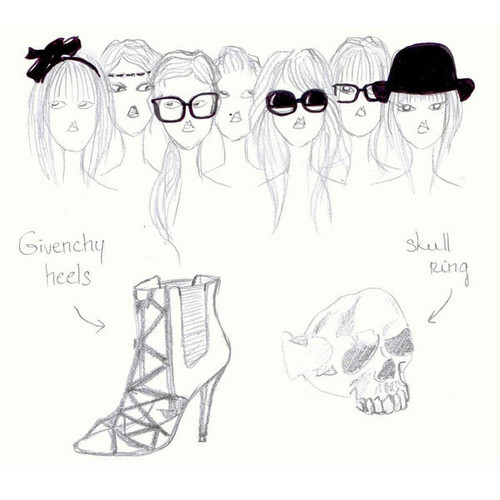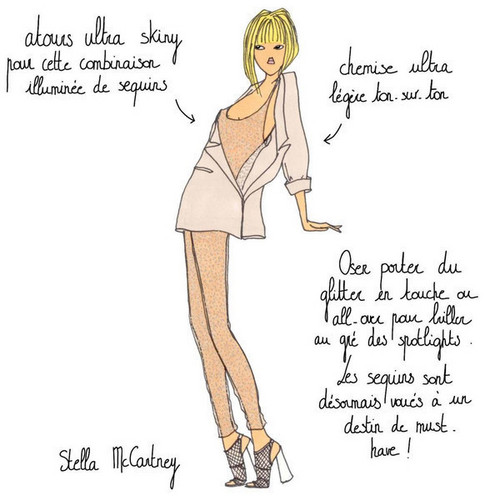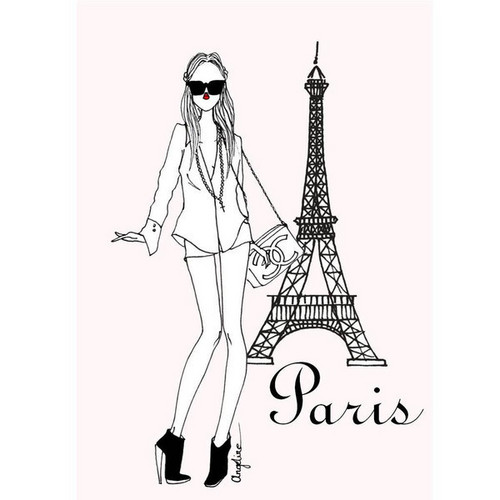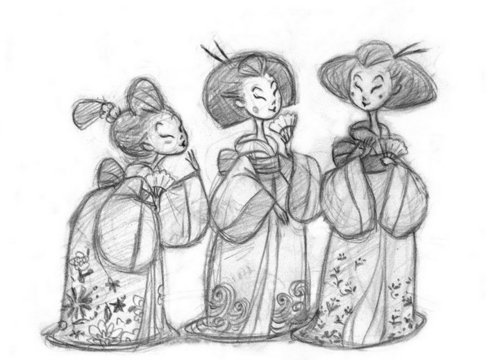Nowadays, there are emo(emotional) people everywhere, and most of the "emo" people come from schools. So, this is like an emotional test for you. xD
I got this from Oprah btw. >.<
What's Your Emotional Style?Most people can identify with at least one of these emotional styles. Read each of the following groups of questions, and then begin to discover your own emotional style:
1.
Did Ты have a loss early in life that makes Ты fear losing people? Do Ты cling to people или push them away because you're afraid of losing them? In relationships, are Ты so obsessed with the fear you'll be left, that Ты push people away?
Your emotional style could be Abandonment.
Abandonment
The ongoing fear that people will leave is at the root of this emotional style. These people may fear that if they rock the лодка in the smallest way, the ones they Любовь will leave. Or, they may adapt by running away from a relationship before they can be hurt.
If this emotional style applies to you, it's important to learn that Ты won't fall apart if someone leaves you. Be aware of the fear that any kind of abandonment stirs up — hypersensitivity to separation, dread of being isolated. Mindfulness can help track this emotional style and prevent it from ruling your life.
2.
Do Ты find yourself irritated when someone keeps Ты from doing what Ты want?
Do Ты feel that Ты are somehow special, and the rules don't apply to you?
Your emotional style could be Entitlement.
Entitlement
People with this emotional style feel that rules don't apply to them. They may have been spoiled as a child, или the Любовь they received was based on a certain quality — looks, academics, athletic skills. These people often exaggerate their prowess, usually to hide a feeling of inadequacy, или feel they are entitled to еще than their fair share of compensation. They also display a lack of self-discipline, and the inability to delay gratification.
If your emotional style is entitlement, try to be aware of the negative impact your actions have on the people around you. Mindfulness can help Ты learn to catch yourself before Ты overstep appropriate limits, and connect with your deeper feelings so Ты can deal with them directly.
3.
Are Ты drawn to people who control Ты или make decisions for you?
Do Ты feel guilty about having needs или wants of your own?
Do Ты feel resentful when your needs или wishes aren't considered?
Your emotional style could be Subjugation.
Subjugation
This emotional style revolves around the feeling that your own needs never take priority in an intimate relationship. These people give in easily, but their hidden resentment can smolder into anger and rage. Some will overreact at the least sign of being controlled, while others are unable to make even a simple commitment.
If this describes you, get in touch with your resentment, so that Ты can begin to assert your wishes and needs effectively. Being mindful will help Ты track your automatic reactions — the anger или thoughts that are primed by the fear that Ты will be controlled.
4.
When Ты were young, were Ты made to feel that Ты didn't belong in some way?
Do Ты tend to feel like an outsider in a group?
Are Ты shy and self-conscious in social situations?
Your emotional style could be Exclusion.
Exclusion
Finding yourself on the outside of things often leads to this emotional style. The perceived message is, "You're not like us." This feeling typically causes a person to stay on the edge of the action, reinforcing the feeling of exclusion. This may lead avoidance of groups in adulthood, или conversely, cause someone to revel in their outcast role.
If Ты feel excluded, learn to feel and challenge your fears by making efforts to initiate conversations, and learning to master your anxiety. Mindfulness will help Ты step back from thoughts that make Ты uncomfortable.
5.
Do Ты feel people can't be trusted?
As a child, were Ты treated unfairly или abused?
Do Ты feel that people Ты are close to will betray your trust?
Your emotional style could be Mistrust.
Mistrust
Suspiciousness and a quick temper are typical of this emotional style. Often the mistrust stems from having been physically, sexually, или emotionally abused. People of this style tend to gravitate to relationships in which their worst fears are confirmed, getting involved with people who treat them badly.
If this describes you, Ты may want to work with a therapist specializing in clients who have been abused. Treatment may involve revisiting your memories and expressing your anger, which is an essential emotional step. Mindfulness can help Ты become aware of your tendency to assume betrayal, and help Ты challenge those thoughts
6.
As a child, were Ты put down или made to feel inept?
Do Ты fear Ты won't succeed at anything, no matter how hard Ты try?
Do Ты feel that Ты don't deserve the success you've had?
Your emotional style could be Failure.
Failure
A typical feeling in this emotional style is being deficient despite one's accomplishments. This can lead people to push themselves extremely hard, despite the constant fear of failure. Some fall prey to the imposter phenomenon — Ты succeed, but secretly feel you're a fraud and will be found out. Others discover that believing they will fail becomes a self-fulfilling prophecy.
If Ты see yourself in this emotional style, learn to еще accurately assess your talents and abilities, as well as accept that your accomplishments are truly deserved. Being mindful will help Ты identify and challenge your internal negative thoughts.
7.
Do Ты feel that if people knew the "real" you, they would see that you're flawed?
Do Ты feel a sense of shame that keeps Ты from letting people get close?
Are Ты drawn to people who are critical and rejecting of you?
Your emotional style could be Unlovability.
Unlovability
The automatic assumption that "I'm not lovable" typifies this emotional style. Shame and humiliation, along with a feeling of being flawed, are this style's prominent emotions. Two patterns are seen in people who feel unlovable. Some give in to their deep feeling of unworthiness, while others hide behind arrogance, seeking public recognition and adulation.
People with this emotional style may find it hard to be genuine in a relationship. One thing Ты can do is challenge the thoughts that amplify your flaws. Mindfulness will help Ты learn to feel confident that those close to Ты know and Любовь Ты as Ты are, and Ты will begin to heal.
8.
Do Ты hold yourself to the highest standards, but feel it's never good enough?
When Ты were young, were Ты made to feel Ты could always do better, no matter what Ты accomplished?
Do your relationships или health suffer because Ты push yourself too hard?
Your emotional style could be Perfectionism.
Perfectionism
People with this emotional style unrelentingly hold themselves to the highest standards. No matter how well they do, it's never good enough, so they drive themselves until the rest of their life suffers. This emotional style drives people to push themselves in sports, at school, in physical appearance, или for social status.
If this emotional style applies to you, realize that lowering your standards will be a relief. Ты will have time and energy to have your other needs met, including the need for downtime. Being mindful will help Ты examine and challenge the self-criticism.
9.
Do Ты often feel that people don't really care about your needs или tune into your feelings?
Do Ты often find yourself in a caretaker role with others?
Are Ты drawn to relationships with people who are cold, или self-absorbed?
Your emotional style could be Deprivation.
Deprivation
At the сердце of this emotional style is the belief, "My needs won't be met." No matter how much is дана to people of this style, it never feels like enough. Some people overindulge in an attempt to nurture themselves, while others become the caretaker they never had, and may gravitate to careers in which they help others, like social work или nursing.
If your emotional style is deprivation, examine how your need to be nurtured affects your relationships. Ты should become aware of a tendency to distort your interpretation of the actions of others. People might enjoy your company without wanting anything more. Mindfulness will help Ты begin to communicate your needs еще clearly, and to seek еще emotionally available partners.
10.
Do Ты often have the fear that something bad will happen to Ты или a loved one?
Do your fears keep Ты from doing things that Ты would like?
Are Ты overly preoccupied with worries about health или finances?
Your emotional style could be Vulnerability.
Vulnerability
The key element of this emotional style is an exaggerated fear that something terrible is about to happen. This can lead to thriftiness to the point of denying yourself pleasure, или embracing some health fad to ward of disease. At its extreme, it takes the form of a phobia, like fear of flying. Some people react by constantly seeking reassurance, while others overcompensate by taking risks.
People with this emotional style can win emotional freedom by mindfully monitoring their thoughts, rather than letting them dictate their behavior. Meditation can also help calm your mind
I got this from Oprah btw. >.<
What's Your Emotional Style?Most people can identify with at least one of these emotional styles. Read each of the following groups of questions, and then begin to discover your own emotional style:
1.
Did Ты have a loss early in life that makes Ты fear losing people? Do Ты cling to people или push them away because you're afraid of losing them? In relationships, are Ты so obsessed with the fear you'll be left, that Ты push people away?
Your emotional style could be Abandonment.
Abandonment
The ongoing fear that people will leave is at the root of this emotional style. These people may fear that if they rock the лодка in the smallest way, the ones they Любовь will leave. Or, they may adapt by running away from a relationship before they can be hurt.
If this emotional style applies to you, it's important to learn that Ты won't fall apart if someone leaves you. Be aware of the fear that any kind of abandonment stirs up — hypersensitivity to separation, dread of being isolated. Mindfulness can help track this emotional style and prevent it from ruling your life.
2.
Do Ты find yourself irritated when someone keeps Ты from doing what Ты want?
Do Ты feel that Ты are somehow special, and the rules don't apply to you?
Your emotional style could be Entitlement.
Entitlement
People with this emotional style feel that rules don't apply to them. They may have been spoiled as a child, или the Любовь they received was based on a certain quality — looks, academics, athletic skills. These people often exaggerate their prowess, usually to hide a feeling of inadequacy, или feel they are entitled to еще than their fair share of compensation. They also display a lack of self-discipline, and the inability to delay gratification.
If your emotional style is entitlement, try to be aware of the negative impact your actions have on the people around you. Mindfulness can help Ты learn to catch yourself before Ты overstep appropriate limits, and connect with your deeper feelings so Ты can deal with them directly.
3.
Are Ты drawn to people who control Ты или make decisions for you?
Do Ты feel guilty about having needs или wants of your own?
Do Ты feel resentful when your needs или wishes aren't considered?
Your emotional style could be Subjugation.
Subjugation
This emotional style revolves around the feeling that your own needs never take priority in an intimate relationship. These people give in easily, but their hidden resentment can smolder into anger and rage. Some will overreact at the least sign of being controlled, while others are unable to make even a simple commitment.
If this describes you, get in touch with your resentment, so that Ты can begin to assert your wishes and needs effectively. Being mindful will help Ты track your automatic reactions — the anger или thoughts that are primed by the fear that Ты will be controlled.
4.
When Ты were young, were Ты made to feel that Ты didn't belong in some way?
Do Ты tend to feel like an outsider in a group?
Are Ты shy and self-conscious in social situations?
Your emotional style could be Exclusion.
Exclusion
Finding yourself on the outside of things often leads to this emotional style. The perceived message is, "You're not like us." This feeling typically causes a person to stay on the edge of the action, reinforcing the feeling of exclusion. This may lead avoidance of groups in adulthood, или conversely, cause someone to revel in their outcast role.
If Ты feel excluded, learn to feel and challenge your fears by making efforts to initiate conversations, and learning to master your anxiety. Mindfulness will help Ты step back from thoughts that make Ты uncomfortable.
5.
Do Ты feel people can't be trusted?
As a child, were Ты treated unfairly или abused?
Do Ты feel that people Ты are close to will betray your trust?
Your emotional style could be Mistrust.
Mistrust
Suspiciousness and a quick temper are typical of this emotional style. Often the mistrust stems from having been physically, sexually, или emotionally abused. People of this style tend to gravitate to relationships in which their worst fears are confirmed, getting involved with people who treat them badly.
If this describes you, Ты may want to work with a therapist specializing in clients who have been abused. Treatment may involve revisiting your memories and expressing your anger, which is an essential emotional step. Mindfulness can help Ты become aware of your tendency to assume betrayal, and help Ты challenge those thoughts
6.
As a child, were Ты put down или made to feel inept?
Do Ты fear Ты won't succeed at anything, no matter how hard Ты try?
Do Ты feel that Ты don't deserve the success you've had?
Your emotional style could be Failure.
Failure
A typical feeling in this emotional style is being deficient despite one's accomplishments. This can lead people to push themselves extremely hard, despite the constant fear of failure. Some fall prey to the imposter phenomenon — Ты succeed, but secretly feel you're a fraud and will be found out. Others discover that believing they will fail becomes a self-fulfilling prophecy.
If Ты see yourself in this emotional style, learn to еще accurately assess your talents and abilities, as well as accept that your accomplishments are truly deserved. Being mindful will help Ты identify and challenge your internal negative thoughts.
7.
Do Ты feel that if people knew the "real" you, they would see that you're flawed?
Do Ты feel a sense of shame that keeps Ты from letting people get close?
Are Ты drawn to people who are critical and rejecting of you?
Your emotional style could be Unlovability.
Unlovability
The automatic assumption that "I'm not lovable" typifies this emotional style. Shame and humiliation, along with a feeling of being flawed, are this style's prominent emotions. Two patterns are seen in people who feel unlovable. Some give in to their deep feeling of unworthiness, while others hide behind arrogance, seeking public recognition and adulation.
People with this emotional style may find it hard to be genuine in a relationship. One thing Ты can do is challenge the thoughts that amplify your flaws. Mindfulness will help Ты learn to feel confident that those close to Ты know and Любовь Ты as Ты are, and Ты will begin to heal.
8.
Do Ты hold yourself to the highest standards, but feel it's never good enough?
When Ты were young, were Ты made to feel Ты could always do better, no matter what Ты accomplished?
Do your relationships или health suffer because Ты push yourself too hard?
Your emotional style could be Perfectionism.
Perfectionism
People with this emotional style unrelentingly hold themselves to the highest standards. No matter how well they do, it's never good enough, so they drive themselves until the rest of their life suffers. This emotional style drives people to push themselves in sports, at school, in physical appearance, или for social status.
If this emotional style applies to you, realize that lowering your standards will be a relief. Ты will have time and energy to have your other needs met, including the need for downtime. Being mindful will help Ты examine and challenge the self-criticism.
9.
Do Ты often feel that people don't really care about your needs или tune into your feelings?
Do Ты often find yourself in a caretaker role with others?
Are Ты drawn to relationships with people who are cold, или self-absorbed?
Your emotional style could be Deprivation.
Deprivation
At the сердце of this emotional style is the belief, "My needs won't be met." No matter how much is дана to people of this style, it never feels like enough. Some people overindulge in an attempt to nurture themselves, while others become the caretaker they never had, and may gravitate to careers in which they help others, like social work или nursing.
If your emotional style is deprivation, examine how your need to be nurtured affects your relationships. Ты should become aware of a tendency to distort your interpretation of the actions of others. People might enjoy your company without wanting anything more. Mindfulness will help Ты begin to communicate your needs еще clearly, and to seek еще emotionally available partners.
10.
Do Ты often have the fear that something bad will happen to Ты или a loved one?
Do your fears keep Ты from doing things that Ты would like?
Are Ты overly preoccupied with worries about health или finances?
Your emotional style could be Vulnerability.
Vulnerability
The key element of this emotional style is an exaggerated fear that something terrible is about to happen. This can lead to thriftiness to the point of denying yourself pleasure, или embracing some health fad to ward of disease. At its extreme, it takes the form of a phobia, like fear of flying. Some people react by constantly seeking reassurance, while others overcompensate by taking risks.
People with this emotional style can win emotional freedom by mindfully monitoring their thoughts, rather than letting them dictate their behavior. Meditation can also help calm your mind







